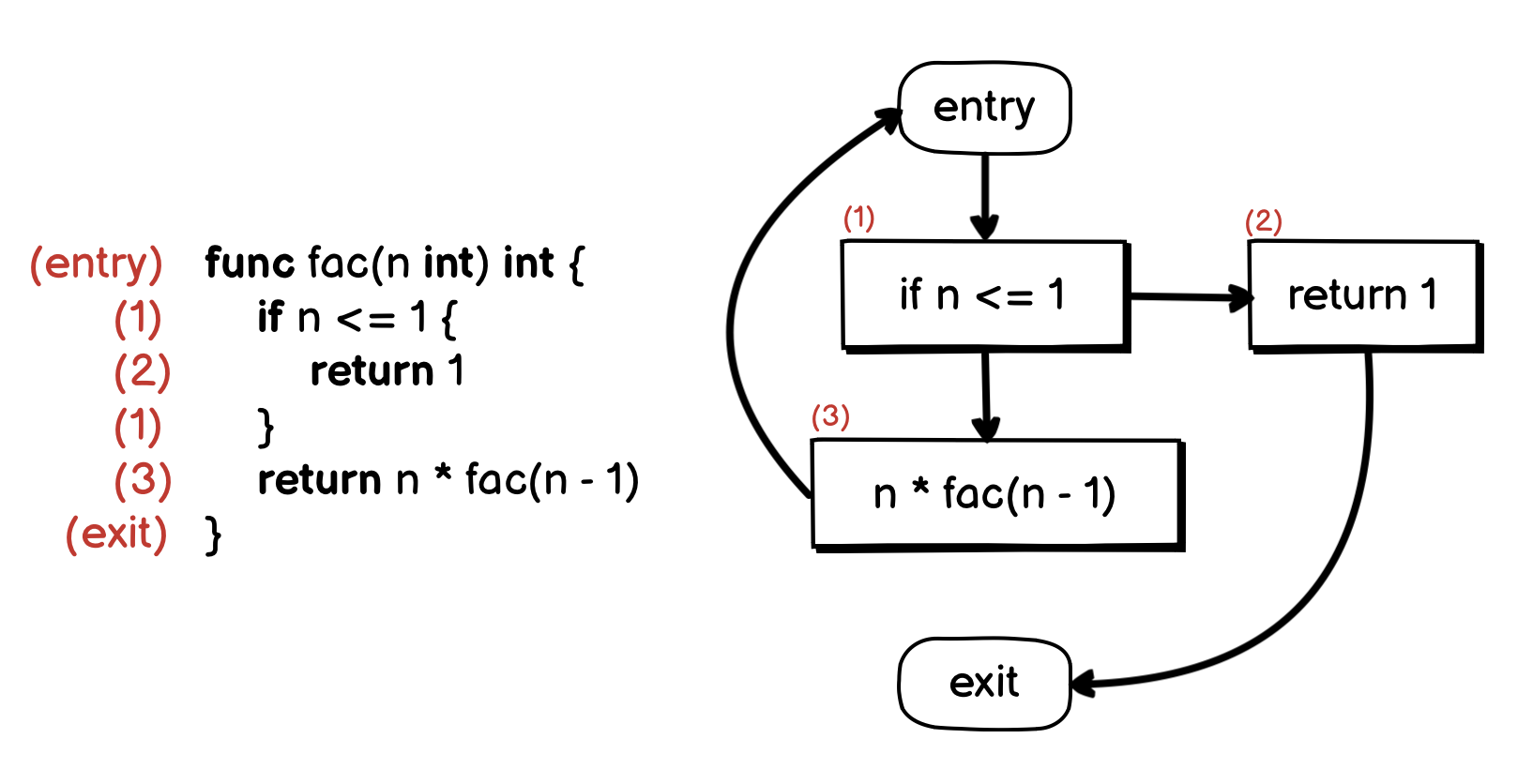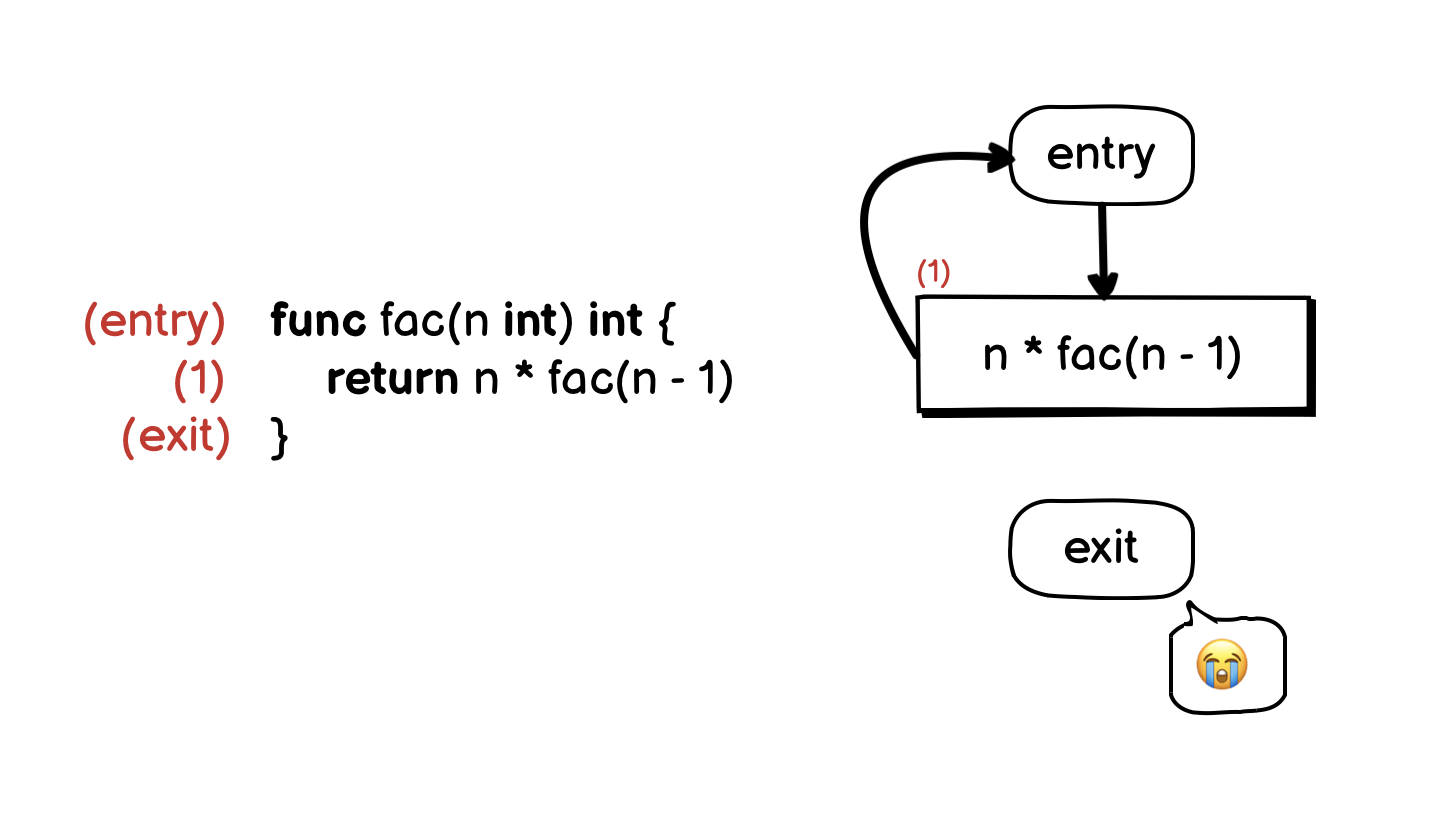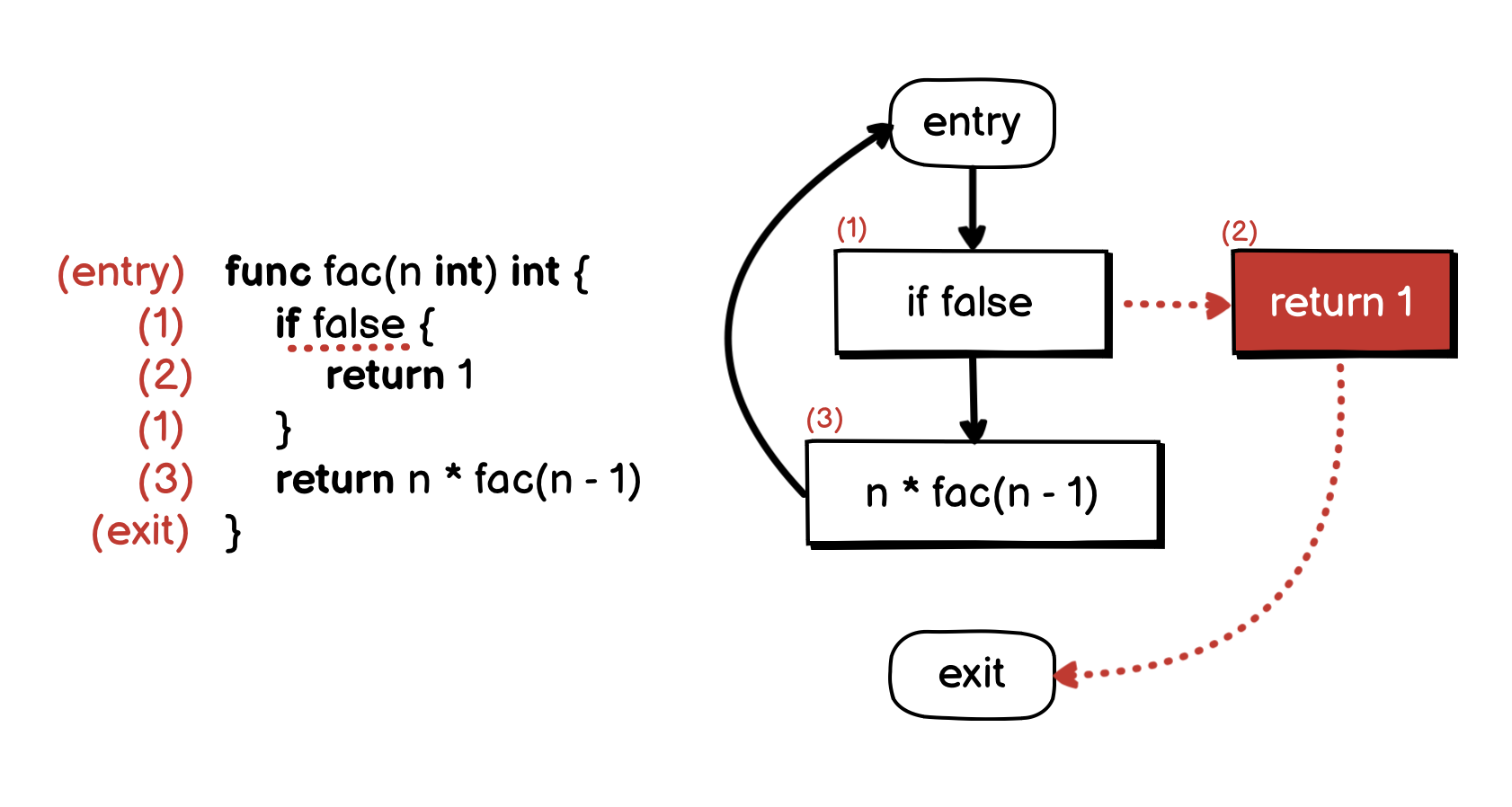Reading Notes / Detect Infinite Recursive Call with Control Flow Graph
go-staticcheck◹ is a static code analysis tool for Go. It has an interesting ability to detect infinite recursive calls. For example, infinite calls like this would be detected early before the program run:
func fac(n int) int {
return n * fac(n - 1);
// ^^^^^^^^^^^^
// infinite recursive call (SA5007) go-staticcheck
}
The way it works is interesting. It is based on Control Flow Graph Analysis◹.
Control Flow Graph (CFG) is a way to represent the code by a directed graph, where each node is a basic block — a straight line of code without any jumps. Each graph must have an entry block and an exit block.
For example, look at the following factorial function:

There are 3 blocks (1), (2), and (3). And the CFG for this function can be illustrated in the above graph. It has the (entry) and (exit) blocks.
In the above graph, there is a recursive call from the block (3), which creates a loop to the (entry) block again. But thanks to the if statement at block (1), we are able to break the loop and reach the (exit) block.
Let’s see what happens if we make this function an infinite recursive, by removing the base condition:

Now, the recursive call from the block (1) creates a loop to the (entry) block, but there is nothing to stop the loop. We will never reach the block (exit). So we know this is an infinite recursive call.
In go-staticcheck, this check is implemented in CheckInfiniteRecursion function◹.
func CheckInfiniteRecursion(pass *analysis.Pass) (interface{}, error) {
for _, fn := range pass.ResultOf[buildir.Analyzer].(*buildir.IR).SrcFuncs {
eachCall(fn, func(caller *ir.Function, site ir.CallInstruction, callee *ir.Function) {
...
block := site.Block()
for _, b := range fn.Blocks {
if block.Dominates(b) {
continue
}
if len(b.Instrs) == 0 {
continue
}
if _, ok := b.Control().(*ir.Return); ok {
return
}
}
report.Report(pass, site, "infinite recursive call")
})
}
return nil, nil
}
It is worth noting that, this approach is only based on the syntax of the code, and can only catch issues during the compilation, not runtime.
For example, in the above infinite recursive call example, we can manipulate the CFG to pass the check by adding a dummy if statement, which does not actually serve as a base condition of the recursive call:

Syntactically, the if statement always creates two branches in the CFG, the static analyzer will assume that the (exit) block can be reached. But in this case, our if statement evaluates the false expression, which makes it always fall into the false branch, and the true branch will never reach. And at runtime, it will cause a stack overflow.